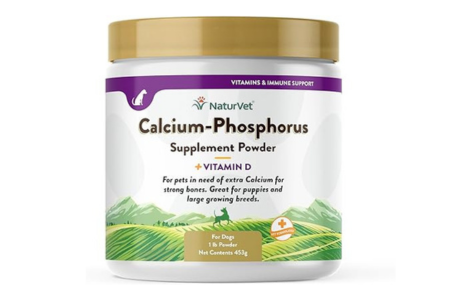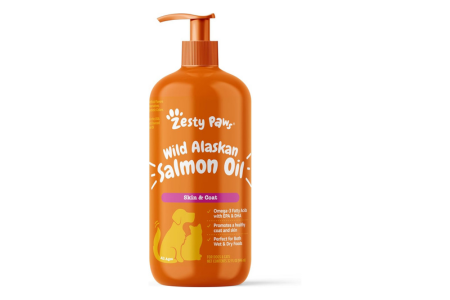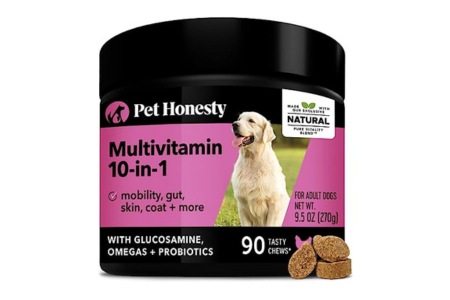Supplementing nursing dogs and maintaining optimal health can be achieved by providing the right supplements and following essential tips. Nursing dogs often have increased nutrient requirements, making it crucial to support their health through proper supplementation.
Additionally, implementing key tips, such as ensuring a balanced diet, providing regular exercise, and regular veterinary check-ups, can further promote their overall well-being. Upholding these practices is vital to ensure nursing dogs maintain good health and support the development of their puppies.
Understanding The Nutritional Needs Of Nursing Dogs
Understanding the nutritional needs of nursing dogs is crucial for ensuring their optimal health and well-being. Nursing dogs have higher nutrient requirements compared to non-lactating dogs, as they need to support the growth and development of their puppies. In this section, we will explore the importance of proper nutrition for nursing dogs and the key nutrients they need for adequate milk production and overall health.
Importance Of Proper Nutrition For Nursing Dogs
Proper nutrition plays a vital role in supporting the health of nursing dogs and their puppies. Having a well-balanced diet can help nursing dogs recover from the energy-intensive process of giving birth and maintain their own optimal health. Furthermore, the quality of the mother’s milk is directly influenced by her diet, so providing the right nutrients is essential for the growth and development of the nursing puppies.

Key Nutrients Needed For Nursing Dogs
Nursing dogs require specific nutrients to support milk production and to meet the increased energy demands of lactation. Here are some of the essential nutrients that nursing dogs need:
- Protein: Adequate protein intake is essential for nursing dogs as it plays a vital role in milk production. Ensure that your dog’s diet contains high-quality protein sources such as lean meats, poultry, and fish.
- Fat: Fat is a concentrated source of energy for nursing dogs and helps support weight maintenance and overall health. Including healthy fats such as omega-3 fatty acids can also promote healthy brain development in the nursing puppies.
- Calcium: Calcium is crucial for proper bone health and milk production in nursing dogs. However, excessive calcium supplementation should be avoided, as it can lead to imbalances. Consult with your veterinarian for the appropriate amount of calcium for your nursing dog.
- Vitamins and Minerals: Nursing dogs require an adequate supply of vitamins and minerals to support their own health and to ensure proper development in their puppies. Vitamin A, B complex vitamins, and minerals like zinc and iron are particularly important.
In addition to these key nutrients, it is essential to provide nursing dogs with an easily digestible diet that is highly palatable. Fresh, clean water should always be available to keep the nursing dog hydrated.
Supplements For Nursing Dogs
Supplements play a vital role in maintaining the overall health and well-being of nursing dogs. During this critical period, when a nursing dog is producing milk to nourish her puppies, it is important to provide her with the necessary nutrients and supplements to support her own health, as well as ensure the optimal growth and development of her puppies. In this article, we will explore some essential supplements for nursing dogs and provide tips for their optimal health.
Calcium Supplements

Calcium is a crucial nutrient for nursing dogs as it helps in bone development, muscle contraction, and blood clotting. Lack of calcium can put nursing dogs at risk of calcium deficiency or postpartum eclampsia, which can lead to serious health problems. To prevent this, it is advisable to provide calcium supplements to nursing dogs.
Omega-3 Fatty Acid Supplements

Omega-3 fatty acids are essential for maintaining healthy skin, promoting a glossy coat, and supporting brain function. These supplements can also enhance the immune system of nursing dogs and prevent inflammation in their bodies. Including omega-3 fatty acid supplements in the diet of nursing dogs can ensure their overall health and well-being.
Vitamin Supplements

Vitamins are essential for the proper functioning of the body and act as catalysts for various important biological processes. Nursing dogs require an adequate supply of vitamins to support their energy levels, maintain a healthy metabolism, and promote strong immune function. Providing vitamin supplements can compensate for any nutritional gaps and contribute to the overall health of nursing dogs.
Probiotic Supplements

Probiotics are beneficial bacteria that support a healthy digestive system. Nursing dogs can benefit from probiotic supplements as they help maintain a balanced gut microbiome, improve nutrient absorption, and boost immunity. These supplements can also alleviate gastrointestinal issues such as diarrhea or constipation, which can occur during lactation.
Choosing The Right Supplements
Supplements can be a valuable addition to a nursing dog’s diet, providing them with the necessary nutrients to support their overall health and well-being. However, with the wide array of supplements available in the market, choosing the right ones can be a daunting task. To ensure you make an informed decision, here are a few important factors to consider:
Consulting With A Veterinarian
Before incorporating any supplements into your nursing dog’s diet, it is crucial to consult with a veterinarian. A professional opinion can help you determine if your dog requires any specific supplements and ensure they are safe for her current condition. A veterinarian will consider factors such as the dog’s age, breed, overall health, and the stage of lactation before recommending the right supplements.
Reading Product Labels
When selecting supplements for your nursing dog, reading product labels is essential. Pay attention to the ingredients, dosage instructions, and any potential warnings or contraindications. Look for reputable brands that follow stringent manufacturing standards, such as those approved by independent quality control organizations. Recognizing and avoiding any potential allergens or harmful additives can help you find supplements that are safe and effective for your dog.
Considering The Specific Needs Of The Dog
Every dog is unique, and their nutritional needs can vary. When selecting supplements, consider your nursing dog’s specific needs. For instance, if your dog has joint issues, supplements with glucosamine and chondroitin may be beneficial. On the other hand, if your dog suffers from skin allergies, supplements containing fatty acids like omega-3 can help promote healthy skin and a glossy coat. Tailoring the supplements to your dog’s specific requirements ensures optimal health benefits.
Remember, supplements should never replace a balanced diet. They are meant to complement your dog’s regular nutrition and address specific concerns or deficiencies. By consulting with a veterinarian, carefully reading product labels, and considering your dog’s specific needs, you can confidently choose the right supplements to support your nursing dog’s overall health.

Tips For Optimal Health Of Nursing Dogs
When it comes to nursing dogs, ensuring their optimal health is of utmost importance for both the mother and the puppies. By providing a well-rounded care plan, including a balanced diet, adequate hydration, regular exercise, proper grooming, stress management, and regular veterinary check-ups, you can help your nursing dog stay healthy and strong. In this post, we will discuss these essential tips in detail to ensure the optimal health of your nursing dog.
Balanced Diet
A well-balanced diet plays a crucial role in the overall health and well-being of your nursing dog. It is important to provide all the essential nutrients, vitamins, and minerals to support her milk production and meet the increased energy requirements during this time. A high-quality commercial dog food specifically formulated for nursing or lactating dogs can be a convenient option to ensure she receives all the necessary nutrients.
Key Points:
- Choose a high-quality dog food formulated for nursing dogs
- Ensure the food is rich in essential nutrients, vitamins, and minerals
- Discuss with your veterinarian to determine the appropriate portion size and feeding schedule based on your dog’s specific needs
Adequate Hydration
Proper hydration is vital for a nursing dog to maintain her milk production and prevent dehydration. Ensure fresh and clean water is easily accessible to her throughout the day. Nursing dogs may have an increased thirst, so it is important to monitor and refill their water bowl regularly. If you notice any signs of dehydration or decreased water intake, consult your veterinarian.
Key Points:
- Provide fresh and clean water at all times
- Monitor water intake and refill the bowl regularly
- Contact your veterinarian if you suspect dehydration or decreased water consumption
Regular Exercise
Just like humans, regular exercise is essential for the overall health and well-being of nursing dogs. Exercise helps maintain a healthy weight, supports cardiovascular health, improves muscle tone, and stimulates mental well-being. However, it is important to consider your nursing dog’s energy levels and consult your veterinarian to determine the appropriate exercise routine and intensity.
Key Points:
- Create a daily exercise routine that includes moderate activities like walks and playtime
- Be mindful of your nursing dog’s energy levels and adjust the intensity as needed
- Consult your veterinarian for personalized exercise recommendations
Proper Grooming
Grooming is not only essential for keeping your nursing dog clean and fresh, but it also contributes to her overall health. Regular brushing helps remove loose hair, prevents matting, and promotes good blood circulation. Additionally, it gives you the opportunity to check for any skin issues or abnormalities that may require veterinary attention.
Key Points:
- Establish a regular grooming routine that includes brushing your nursing dog’s coat
- Use appropriate grooming tools and techniques for her specific coat type
- Check for any skin issues or abnormalities during grooming and consult your veterinarian if needed
Stress Management
Reducing stress levels in nursing dogs is crucial for their overall health and well-being. Excessive stress can affect milk production, interfere with mother-puppy bonding, and even lead to health issues. Create a calm and safe environment for your nursing dog, away from loud noises and excessive activity. Provide a comfortable and quiet space for her to nurse her puppies without any disturbances.
Key Points:
- Create a calm and safe environment for your nursing dog
- Avoid loud noises and excessive activity near her space
- Provide a comfortable and quiet area for her to nurse her puppies
Regular Veterinary Check-ups
Regular veterinary check-ups play a vital role in monitoring the health and well-being of your nursing dog. Schedule routine appointments with your veterinarian to ensure they can identify any health issues early and provide appropriate treatment. Your veterinarian can also provide specific advice tailored to your nursing dog’s needs, including vaccinations and parasite control.
Key Points:
- Schedule routine check-ups with your veterinarian
- Discuss any concerns or questions about your nursing dog’s health during these visits
- Follow your veterinarian’s recommendations for vaccinations and parasite control
Managing Weight And Body Condition
Managing weight and body condition is crucial for nursing dogs to maintain optimal health. By monitoring their body condition score, adjusting their diet and exercise routine, and avoiding overfeeding, you can help your nursing dog stay fit and healthy. In this section, we will explore these tips in detail.
Monitoring Body Condition Score
One of the key steps in managing weight and body condition in nursing dogs is to monitor their body condition score (BCS). BCS is a numerical value that indicates the dog’s overall body condition and helps assess whether they are underweight, overweight, or at an ideal weight.
To determine the BCS of your nursing dog, you can use a visual and tactile assessment. Look for visible signs such as the presence of ribs, waist indentation, and abdominal tuck. Additionally, gently palpate their ribs and backbone to feel the fat layer. If you can easily feel the ribs without applying much pressure, and there is a slight fat covering, your dog is likely in an ideal body condition.
Adjusting Diet And Exercise Routine
Once you have determined your nursing dog’s body condition score, it’s essential to adjust their diet and exercise routine accordingly. If your dog is overweight, reducing their calorie intake and increasing their physical activity can help them shed those extra pounds. On the other hand, if they are underweight, you may need to provide them with a higher-calorie diet to help them gain weight.
Here are some tips for adjusting the diet and exercise routine:
- Consult with your veterinarian to determine the appropriate caloric needs for your nursing dog based on their body condition score.
- Select a high-quality dog food that is specifically formulated for nursing dogs.
- Feed your dog multiple smaller meals throughout the day rather than one large meal to provide a steady source of energy.
- Incorporate low-impact exercises such as walking or swimming into your dog’s daily routine.
Avoiding Overfeeding
Overfeeding is a common mistake that can lead to weight gain and poor body condition in nursing dogs. While it’s important to provide adequate nutrition for nursing mothers, it’s equally crucial to avoid overfeeding them. Excess weight can strain their joints and increase the risk of health issues.
Here are some tips to avoid overfeeding:
- Measure your dog’s food portions to ensure they are receiving the right amount of calories.
- Avoid giving excessive treats or table scraps, as they can contribute to weight gain.
- Use interactive feeding toys or puzzles to slow down your dog’s eating pace and make mealtime more mentally stimulating.
- Monitor your dog’s body condition score regularly to assess their progress and make adjustments accordingly.
Addressing Common Health Issues
Boost the health of nursing dogs with the right supplements and care tips. Keep your furry companions in optimal shape for a happy and robust life.
Mastitis
Mastitis is a common health issue that nursing dogs may experience. It is an inflammation of the mammary gland, usually caused by a bacterial infection. If left untreated, mastitis can lead to severe discomfort, decreased milk production, and even abscess formation. To address this issue, you can consider incorporating the following tips:
1. Prompt Veterinary Attention: It is crucial to consult your veterinarian if you suspect mastitis in your nursing dog. Your vet may prescribe antibiotics to fight the infection and relieve the associated inflammation.
2. Hot Compresses: Applying warm compresses to the affected area can promote blood circulation and help alleviate the discomfort caused by mastitis.
3. Frequent Nursing Sessions: Encourage your nursing dog to nurse her puppies frequently. Regular nursing stimulates milk flow, helps clear the blocked ducts, and prevents the development of mastitis.
Postpartum Depression
Just like humans, nursing dogs can also experience postpartum depression. This condition is often accompanied by a loss of appetite, decreased maternal instincts, and general lethargy. Here are some ways you can help address postpartum depression in your nursing dog:
1. Provide a Supportive Environment: Create a safe and comfortable space for your nursing dog where she can feel secure and relaxed. Offer her a quiet area away from noise and disturbances.
2. Plenty of Rest: Postpartum depression can be exhausting for nursing dogs. Ensure she gets plenty of rest and uninterrupted sleep. Set up a cozy bed for her and limit visitor access if necessary.
3. Nutritional Support: A high-quality diet supplemented with essential minerals and vitamins can help boost your nursing dog’s mood and overall well-being. Speak to your veterinarian about the best diet options for her.
Infections
Infections can be a common health issue in nursing dogs. Whether it’s a urinary tract infection, respiratory infection, or skin infection, prompt intervention is necessary. Consider these tips to address infections in nursing dogs:
1. Hygiene and Cleanliness: Maintain a clean and hygienic environment for your nursing dog and her puppies. Regularly clean their living area and bedding to minimize the risk of infection.
2. Vaccination: Ensure your nursing dog is up to date with her vaccinations. Vaccines can help prevent certain infections and boost her immune system.
3. Antibiotics: If your nursing dog develops an infection, your veterinarian may prescribe antibiotics to help combat the bacteria or virus causing it. Follow the prescribed dosage and duration carefully.
Gastrointestinal Upset
Gastrointestinal upset, such as diarrhea or vomiting, can affect nursing dogs. These issues can be caused by dietary changes, stress, or underlying health conditions. To address gastrointestinal upset:
1. Dietary Modifications: Consider switching to a bland diet for a short period, consisting of easily digestible foods such as boiled chicken and rice. Gradually reintroduce the regular diet once the symptoms subside.
2. Hydration: Ensure your nursing dog has access to fresh water at all times. Offer small, frequent amounts of water to prevent dehydration.
3. Probiotics: Speak to your veterinarian about the possibility of incorporating probiotic supplements into your nursing dog’s diet. Probiotics can help restore the balance of healthy gut bacteria and alleviate gastrointestinal upset.
Skin And Coat Problems
Nursing dogs may experience various skin and coat problems, including dry skin, itchiness, and hair loss. To address these issues:
1. Regular Grooming: Brush your nursing dog’s coat regularly to remove any debris or dead skin cells. This helps improve blood circulation and distributes natural oils, promoting a healthier coat.
2. Moisturizing: Consider using a gentle, moisturizing shampoo designed for dogs to help alleviate dry skin. Additionally, you can incorporate a moisturizing conditioner to further nourish the coat.
3. Supplements: Omega-3 fatty acid supplements can be beneficial for nursing dogs with skin and coat problems. These supplements can help reduce inflammation and promote a healthier and shinier coat. Addressing common health issues in nursing dogs is important for their overall well-being and the well-being of their puppies. By being proactive and seeking veterinary advice, you can ensure a healthier and happier nursing experience for your dog.
Creating A Comfortable Whelping Area
Welcome to our blog post about supplements for nursing dogs and tips for optimal health. In this section, we will discuss the importance of creating a comfortable whelping area for your nursing dog. A whelping area that provides a safe and cozy environment is crucial for the health and wellness of both the mother and her puppies. Let’s explore the key factors in setting up a perfect space for your nursing dog.
Choosing A Suitable Location
The first step in creating a comfortable whelping area is to choose a suitable location. Ideally, you want to select a quiet and secluded spot where your nursing dog can feel secure and relaxed. The area should be away from high foot traffic and noise to minimize stress. Additionally, ensure the location is easily accessible for you to provide necessary care and supervision.
Providing Adequate Bedding
Next, focus on providing your nursing dog with adequate bedding. Soft and comfortable bedding helps cushion the mother and her puppies, providing them with a cozy place to rest. Consider using materials such as clean blankets, towels, or specialized whelping pads. These options are easy to wash, preventing the buildup of bacteria and ensuring a clean environment for the nursing dog and her puppies.
Ensuring Proper Temperature And Ventilation
Temperature and ventilation play a vital role in maintaining a comfortable whelping area. Keep the temperature within a range of 75-85 degrees Fahrenheit to ensure the puppies stay warm. You can achieve this by using heating pads or heat lamps, but ensure they are positioned away from direct contact with the puppies to avoid burns. Adequate ventilation is also essential to prevent overheating and maintain fresh air circulation. Ensure the area has proper airflow without direct drafts or chilly spots.
Maintaining Cleanliness And Hygiene
To promote optimal health, it is crucial to maintain cleanliness and hygiene in the whelping area. Regularly clean the space to remove any urine, feces, or dirt. This helps reduce the risk of infection and keeps the area smelling fresh. Additionally, provide fresh water for the nursing dog at all times and ensure the area is free of any hazardous substances that could harm the puppies. By staying vigilant with cleanliness and hygiene, you can create a healthier environment for your nursing dog and her puppies.
Assisting With Weaning
Discover the best supplements and tips for optimal health while nursing your dog during the weaning process. Enhance your dog’s well-being with these essential recommendations for a smooth transition and overall health.
Weaning is a crucial phase in a nursing dog’s life as it marks the transition from solely relying on mother’s milk to a solid food diet. It’s a process that requires careful attention and proper support to ensure the health and well-being of both the mother dog and her puppies. In this section, we will discuss effective strategies to assist with weaning and promote a smooth transition to solid food.
Introducing Solid Food
When it comes to introducing solid food, it’s important to do so gradually. Start by offering small portions of a high-quality puppy food mixed with warm water or milk replacer to create a semi-liquid consistency. Gradually reduce the amount of liquid added over time until the puppies are eating the food in its original state. This allows their digestive systems to adjust to the new textures and flavors.
Here are some key tips for introducing solid food:
- Choose a puppy food that is specifically formulated to meet the nutritional needs of nursing dogs and their growing puppies. Look for options that contain essential nutrients such as proteins, fats, vitamins, and minerals.
- Prepare the food in small, shallow dishes to make it easily accessible for the puppies.
- Ensure a calm and quiet environment during feeding time to minimize distractions and allow the puppies to focus on their food.
- Observe the puppies closely during meals to ensure they are eating and adjusting well to the solid food.
Gradually Reducing Nursing Sessions
As the puppies start consuming solid food, it becomes necessary to gradually reduce their nursing sessions. This allows the mother dog’s milk production to decrease naturally and prevents uncomfortable engorgement. Here’s how to go about it:
- Begin by replacing one nursing session with a small meal of solid food. Monitor the puppies’ response and adjust the frequency based on their appetite and overall health.
- As the puppies become more comfortable with solid food, gradually reduce nursing sessions, ideally one at a time, while increasing the amount and frequency of solid food meals.
- Keep a close eye on the mother dog’s behavior and milk production. If she shows signs of discomfort or her milk supply becomes excessive, consult with a veterinarian for guidance on the most appropriate weaning schedule.
Monitoring Puppies’ Transition
During the weaning process, it’s crucial to monitor the puppies’ transition from nursing to solid food to ensure they are thriving and growing properly. Here are some important aspects to consider:
- Monitor the puppies’ weight regularly. A healthy transition should be accompanied by steady weight gain. If any concerns arise, seek veterinary assistance to address potential issues promptly.
- Observe their behavior during and after meals. Puppies should show enthusiasm while eating and exhibit normal digestive functions afterward.
- Provide ample fresh water for the puppies. As they consume more solid food, their water intake will increase, aiding digestion and overall hydration.
- Continue to provide a nurturing environment and gentle socialization to support the puppies’ overall well-being during the weaning process.
Vigilance and proactive care during the weaning period are essential for the health and development of nursing dogs and their puppies. By following the tips and strategies mentioned above, you can assist in a smooth transition to solid food, setting the foundation for optimal health and growth in these adorable bundles of joy.
Frequently Asked Questions For Supplements For Nursing Dogs And Tips For Optimal Health
How Do I Keep My Nursing Dog Healthy?
To keep your nursing dog healthy, follow these guidelines: 1. Provide a balanced diet and ensure she gets enough nutrition. 2. Keep her hydrated with fresh water at all times. 3. Regular exercise is crucial for her well-being. 4. Keep up with vet check-ups and vaccinations.
5. Provide a stress-free environment for her and offer plenty of love and attention.
What Is The Ideal Diet To Feed A Healthy Lactating Nursing Dog?
An ideal diet for a healthy lactating nursing dog includes high-quality commercial dog food specifically formulated for nursing mothers, supplemented with lean protein sources and plenty of fresh water. It is important to consult with a veterinarian to determine the specific nutritional needs for your dog during this stage.
What Is The Best Food To Give A Nursing Dog?
The best food for a nursing dog is high-quality puppy food that is formulated for their nutritional needs. It should be rich in protein, calcium, and essential vitamins. Consult with a veterinarian for the specific dietary requirements and to ensure the health of the nursing dog and her puppies.
What Can I Give My Dog To Help With Nursing?
To help with nursing, you can give your dog lactation-supporting supplements or foods like goat’s milk, fenugreek, and fennel. It is important to consult your vet before giving any new products or supplements to your dog.
Conclusion
Incorporating supplements into the diet of your nursing dog can play a vital role in ensuring their optimal health. By providing essential nutrients and supporting overall well-being, these supplements can enhance the nursing dog’s ability to provide nourishment to their puppies.
However, it’s important to consult with a veterinarian before introducing any supplements. Remember to prioritize the well-being of both the nursing dog and her puppies for a happy and healthy journey.







